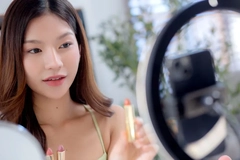L’Oréal and True Diagnostic leverage epigenomics for skin and hair care formulation

L’Oréal has announced a partnership with epigenomics testing company, Tru Diagnostic, to explore how epigenetic changes translate to visible signs of aging. By decoding these biological markers, the companies aim to design new cosmetic solutions that enhance appearance and promote long-term skin and hair health.
Epigenomics is an area of science that examines how certain factors — such as aging, stress, diet, pollution, climate, and lifestyle — can affect how genes work. These changes are known as “heritable biological shifts,” meaning they can affect how genes work and how the body looks and feels over time, even though the DNA stays the same.
The partnership reflects a growing trend in the beauty industry, where companies focus more on long-term wellness and preventative care rather than corrective care.

“Epigenomics has the potential to revolutionize how we understand beauty at a biological level. Together, we aim to lead the charge in integrating epigenetic science into the beauty industry,” says Tru Diagnostic’s CEO, Matthew Dawson.
L’Oréal believes understanding the epigenome is key to offering beauty consumers targeted solutions based on their unique biological aging processes. By studying epigenomic markers, the partnership aims to develop more advanced products that help consumers manage aging from the inside out rather than covering it up.
Demand for longevity
The partnership taps into increasing consumer interest in longevity and holistic wellness. More people want to understand how to keep their skin and hair healthy over time so they are choosing products based on science and proven results.
Innova Market Insights data indicates that 33% of consumers globally consider anti-aging the most important feature in functional skin care. This has led to a 5% global market growth in product launches featuring anti-aging claims from 2019 to 2023.
 Epigenomics studies how stress, diet, pollution, climate, and lifestyle can affect gene functions.The demand for anti-aging solutions in the personal care industry has driven the emergence of the “longevity” trend, which does not solely refer to ageless beauty, but to the broader scope of promoting a healthy skin aging process.
Epigenomics studies how stress, diet, pollution, climate, and lifestyle can affect gene functions.The demand for anti-aging solutions in the personal care industry has driven the emergence of the “longevity” trend, which does not solely refer to ageless beauty, but to the broader scope of promoting a healthy skin aging process.
Guive Balooch, head of Open Innovation and Augmented Beauty at L’Oréal, says: “By combining our understanding of beauty biology with Tru Diagnostic’s expertise in epigenomics, we are poised to lead the field of longevity biomarker discoveries that will bring new product offerings and diagnostic insight to our consumers to proactively care for their skin and hair health with the best longevity science solutions.”
Preventing trumps repairing
This partnership signals a new direction for the beauty industry, where health and beauty are becoming more connected. Instead of just making people look better, future beauty products may also help people feel better by supporting their biological health.
The industry is already innovating to create solutions targeting the below-surface causes of aging. The Estée Lauder Companies recently announced it will leverage biotechnological anti-inflammatory research for cosmetic formulations related to the longevity trend.
Personal Care Insights also recently spoke with Alice Balloffet Belveyre at Givaudan about the company’s latest algae-derived ingredient. “It is expected to be incorporated into preventive and corrective products that address signs of aging,” she told us.
According to retail giant Boots’ trend forecast for 2025, the interest in “prejuvenation” solutions is steadily growing, with more consumers taking preventative measures to skin aging rather than repairing measures.













